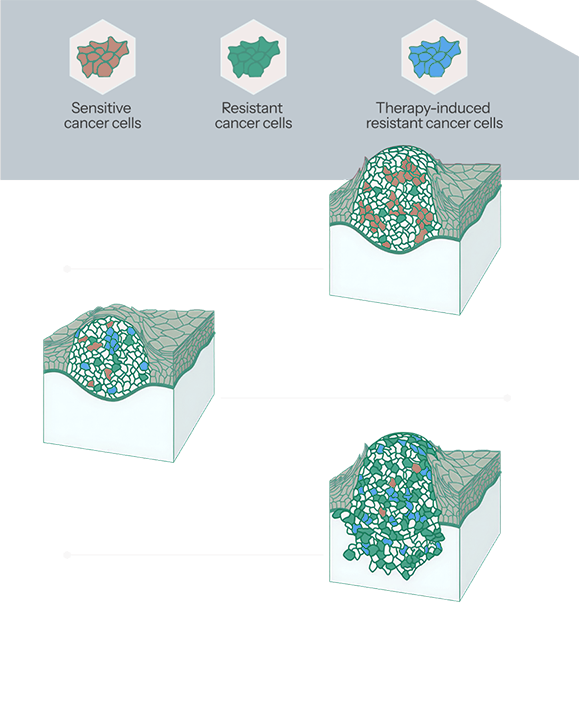Turning Scientific Discovery into Cancer Therapies
We are developing first-in-class drugs to block APOBEC enzymes, using cutting-edge chemistry to halt the mutations that fuel cancer’s growth and resistance.





APOBEC Enzymes Bind to DNA and RNA
APOBEC 3A and 3B are enzymes known as cytidine deaminases, which bind to cytosine in DNA and RNA.
APOBEC Enzymes Convert Cytosine to Uracil
Cytosine (C) is one of the four primary nucleotide bases found in DNA and RNA, along with adenine (A), guanine (G), and thymine (T) (or uracil (U) in RNA) that make up our genetic code..
Apobec 3A and 3B convert cytosine (C) to uracil (U) by the removal of an amine group.
Genetic Instability Drives Cancer Development and Evolution
This transformation to uracil changes the genetic code of the DNA or RNA.
Uracil is not normally present in DNA and gets replaced by thymine (T) or is wrongly translated in RNA leading to genetic instability and chromosomal aberrations, resulting in cancer driving mutations which not only cause the development and evolution of cancer but also treatment resistance and spread.
Treatment Resistance

As well as driving the development and growth of tumours APOBEC enzymes are also key drivers of their evolution into more aggressive forms and those that are more likely to spread to other parts of the body.
There is also a large and growing body of published scientific research showing that they are intrinsically involved in the development of treatment resistance.
Not only do APOBEC driven mutations lead to the development of treatment resistant cancer cells but the cancer treatments themselves cause an increase in the activity of APOBEC enzymes leading to treatment failure.
Multiple classes of different, frequently used cancer therapies have been shown to increase APOBEC activity which in turn becomes a major cause of treatment resistance.
Cancers Impacted by the APOBEC Mechanism

Which cancers are caused or driven by APOBEC mutations?
Apobec Discovery has been successful in finding potent inhibitors of APOBEC enzymes and shown inhibition of cancer cell growth.
Apobec Discovery believes it remains at the forefront of APOBEC inhibitor drug discovery.
Pipeline
Our work is a response to the scientific breakthroughs that have uncovered how APOBEC enzymes drive the mutations that cause cancers to form, evolve and resist treatment. We are committed to developing the first therapies designed to inhibit them.
Everyone who has supported us so far has done so through a shared belief in this science and its potential to change the future of cancer treatment.